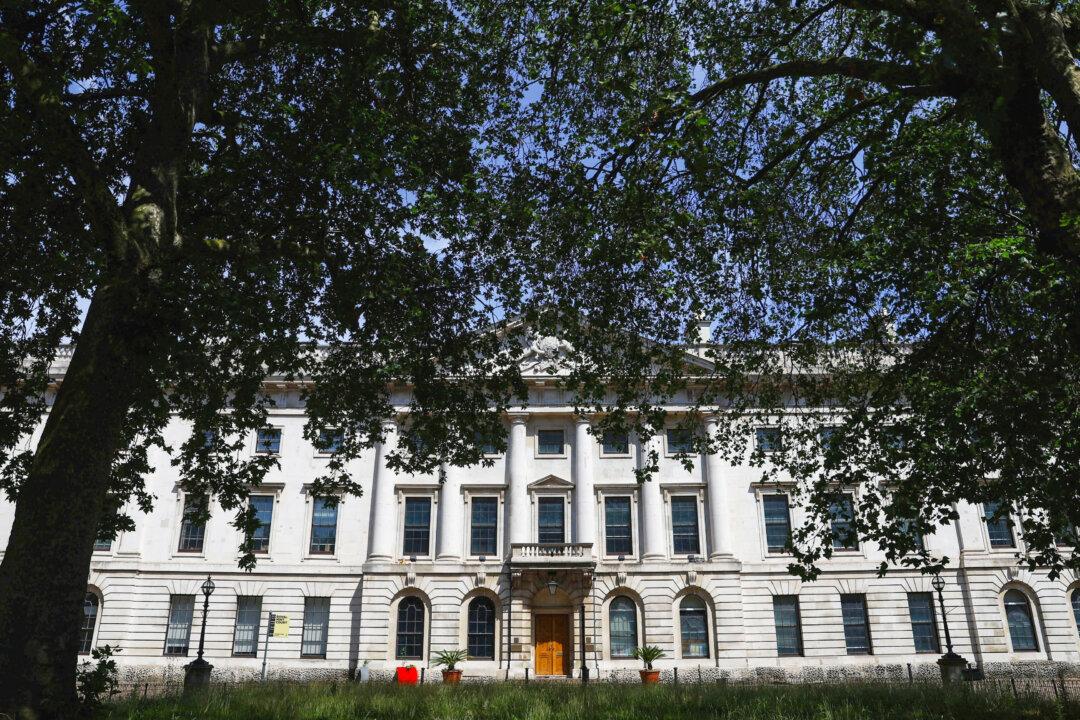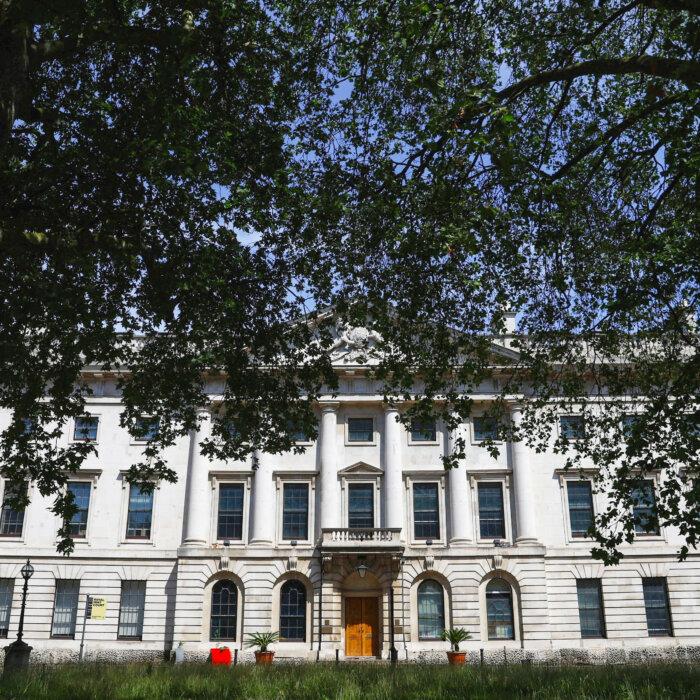A U.S. House of Representatives committee has warned that China’s plan to build a giant embassy in London raises “significant security concerns.”
Mega-Embassy
The Chinese regime bought the Royal Mint Court, a historic site near the Tower of London, in 2018 for 255 million pounds ($326 million), with plans to turn it into a roughly 700,000-square-foot embassy.It would be 10 times the size of China’s current embassy at London’s Portland Place and nearly twice the size of the Chinese Embassy in Washington.
According to the plan, the site, which has been vacant since 2013, will be partly renovated and partly rebuilt into a complex consisting of a main embassy building, a visa center, a “cultural exchange building,” and 225 flats for embassy personnel and visitors.
In January, the British foreign and interior ministers indicated they would support the regime’s plans.
Foreign Minister David Lammy and Interior Minister Yvette Cooper, in a joint letter to the planning inquiry, highlighted “the importance of countries having functioning diplomatic premises in each other’s capitals.”
Local Rejection
On Dec. 9, 2024, London’s Tower Hamlets council rejected Beijing’s plan for the new embassy for a second time.The borough’s Strategic Development Committee voted unanimously to reject the planning application, citing concerns over protest-related issues such as traffic congestion, the impact on local tourism, and policing.
During the consultation process, locals objecting to the plan said they were concerned about the embassy’s potential impact on local heritage sites and local communities, and that the massive compound could be used as a “secret police station.“
The decision on the new application ultimately rests with the UK’s central government, which took over the application following a request from Beijing.
Threat
On Oct. 8, 2024, Ken McCallum, director general of MI5, the UK’s domestic security and counterintelligence agency, gave a rare public speech on the biggest national security threats to the UK.Threats from autocratic regimes—namely, in Russia, Iran, and China—have resulted in a 48 percent increase in state threat investigations, he said.
McCallum said China presents the most complex relationship of the three because while the UK recognizes the ruling Chinese Communist Party (CCP) as a threat, it wants to maintain business relations with the country.
“The UK–China economic relationship supports UK growth, which underpins our security,” he said.
“There are also risks to be managed. The choices are complex, and it rightly falls to ministers to make the big strategic judgements on our relationship with China: where it’s in the UK’s interests to co-operate, and how we do so safely.”
MI5’s role in countering the CCP threat is in disrupting attempts to harm or coerce people, often of Chinese heritage; countering CCP-backed cyberattacks and mass attempts to steal information; and “tackling threats aimed at our democracy,” McCallum said.
Efforts to disrupt these operations need to be coupled with the education of businesses, universities, and other organizations on how to engage with China while managing the risks, he said.
The UK Ministry of Housing, Communities, and Local Government and the Foreign, Commonwealth & Development Office did not respond to requests for comment by publication time.







